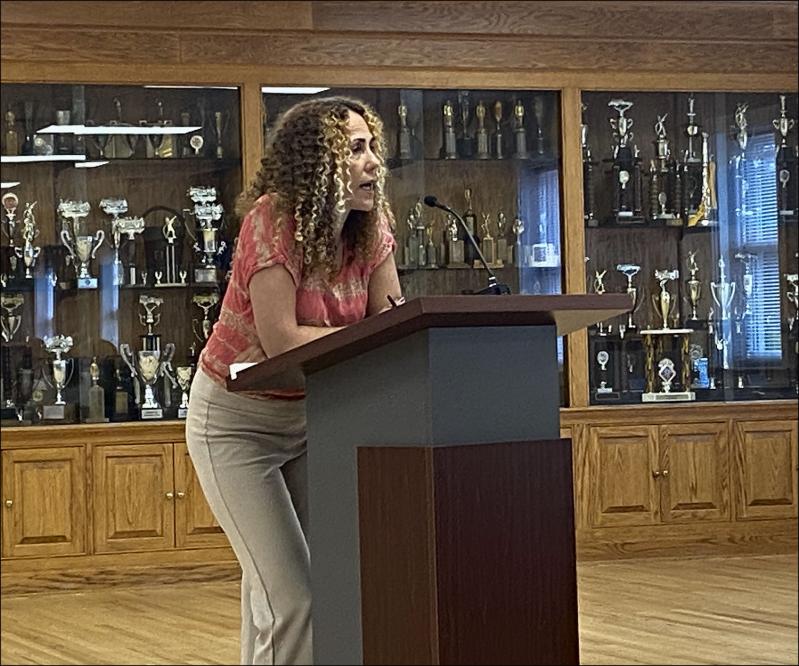Simmering discontent with the effort by East Hampton Village officials to publicize code amendments passed over the winter that require service workers to register with the village and curtail noise by tightening the hours during which such work can be done came to a boil at the village board’s July 2 meeting, with an attorney and the director of a Latino advocacy organization forcefully criticizing what they deemed insufficient outreach.
The code amendments, the critics said, are almost universally impacting the Latinos who perform a large majority of the work in question. But any assertion that the laws target Latinos is not only incorrect but offensive, village officials including Mayor Jerry Larsen fired back.
The tense discussion between the board and those issuing public comment came amid a fraught atmosphere marked by rumors of federal Immigration and Customs Enforcement raids of workplaces, leaving many Latinos fearful regardless of their legal status.
The July 2 organizational meeting followed the board’s June 18 meeting, at which an attorney, Susan Menu, told the board of a $300 ticket issued to a service worker who did not want to contest it. “He was afraid if he had fought it, he would be targeted,” she told the board then.
Last week, Minerva Perez, the executive director of Organizacion Latino-Americana of Eastern Long Island, or OLA, told the board that, while the noise ordinance “was what your community wants and we certainly appreciate that . . . what we’re concerned about in a really grave way right now is the enforcement of it and the way it’s rolled out.”
“But right now,” she said, “if the noise situation is what we want to really control, then why not get adequate information out in advance of this?” The service sector work force is Spanish speaking, she said, “and we’re not getting information out in an adequate fashion and flooding the information cycle” so that the laws are understood and adhered to by those workers.
Further, she said, “East Hampton Town gives the option to the officer who’s giving that ticket to say you do or you don’t have to go to court. You’re not making that even a possibility. So these people that are being given this ticket have no other option but to come into court.” This compels them to take time off from their job, she said, “and God forbid they’re not wearing the right outfit,” a reference to Town Justice Steven Tekulsky, who has scolded defendants deemed improperly attired in his courtroom. “Coming from the middle of a workday,” Ms. Perez continued, “it can be a really unfortunate experience.”
“If you guys want a courtroom in East Hampton Village, that could be a separate conversation,” Ms. Perez continued. “I want to make sure that we’re looking at these people as human and that we’re giving them the information and the ability to pay this fine another way, as they do in East Hampton Town.”
Mr. Larsen rejected the criticism. “First of all, this is not about Hispanics,” he said, noting that Trustee Sandra Melendez is the first Latina on the board. “We had the first Hispanic Day Parade last year in this community. . . . We were one of the first boards to come out and have an informational session when the Trump administration decided to change all the rules. . . . And I have to say, no disrespect, but OLA was nowhere to be found at that meeting when I requested you to be there. So I take offense to you trying to say that we’re picking on Hispanics.”
Ms. Perez said she had made no such accusation. “The fact is that we happen to have mostly Latinos that are doing this landscaping work. With that knowledge and your sensitivity, why wasn’t there more information out, and why are we doing it this way? . . . So please don’t take offense. It’s a question.”
“I am taking offense,” the mayor repeated. “Do you even have the statistics on how many Hispanic people were issued summonses as opposed to how many non-Hispanic people?”
He asked Lisa Perillo, the village attorney, to enumerate the village’s legal requirement to implement the new laws. “I think we’ve gone above and beyond my understanding of the regular notice provisions by reaching out via social media,” she said. “We also specifically requested to the town: Who are their licensed landscapers and contractors? so that we can give extra notice above and beyond the requirement to those landscapers that they were required to comply with the law.”
The mayor asked Marcos Baladron, the village administrator, what steps had been taken to make people aware of the law. Addressing Ms. Perez, he said that “it’s a little insulting on our end for a guy that’s called Marcos Baladron and three feet away from” Ms. Melendez, “a very well-known immigration lawyer. We’ve probably done more with this legislation than we’ve ever done with any other legislation in the last five years, including 1,800 contractors licensed in the Town of East Hampton not just mailed directly once, but twice. We don’t have to do that, but we did that on our own because we don’t want fines, we want compliance.” Residents, he said, “are fed up with constant construction, constant hammering of hammers and saws and the never-ending leaf blowers.”
Outreach began in February, he said. Companies were contacted twice by mail, in English and in Spanish. The village disseminated word of the new laws via its Instagram account, and hundreds of warnings were issued.
Ms. Menu told the mayor that, while she did not believe it intended to target Latinos, “if you think that I’m accusing this law of unfairly impacting Latinos, you are accurate.” None of those issued summonses knew about the laws, she said, “and they’re petrified. Are you insensitive to that? They’re frightened to come to court, and then they have to listen to Judge Tekulsky say, ‘You have a T-shirt on? I’m outraged. Don’t come to court.’ “
The noise people object to, she said, is due to houses being built “by the wealthiest people in this town. This law impacts the poorest people in this town.”
The Police Department issued more than 150 warnings throughout April, the mayor said. “They put them on the windshields of cars, on trucks parked along the streets. They stopped people, they explained it to them.”
“I’m here to warn you . . .” Ms. Menu began.
“Oh, you’re <I>warning<P> us,” a frustrated Mr. Larsen interrupted.
“. . . that you are violating the civil rights of a large number of people,” Ms. Menu said.
“There are no civil rights violations,” Ms. Perillo said. “We passed these laws lawfully. We gave all the notice that due process requires. . . . Thank you for the warning.”
“The law,” said Trustee Carrie Doyle, “is targeting noise. Full stop.”




